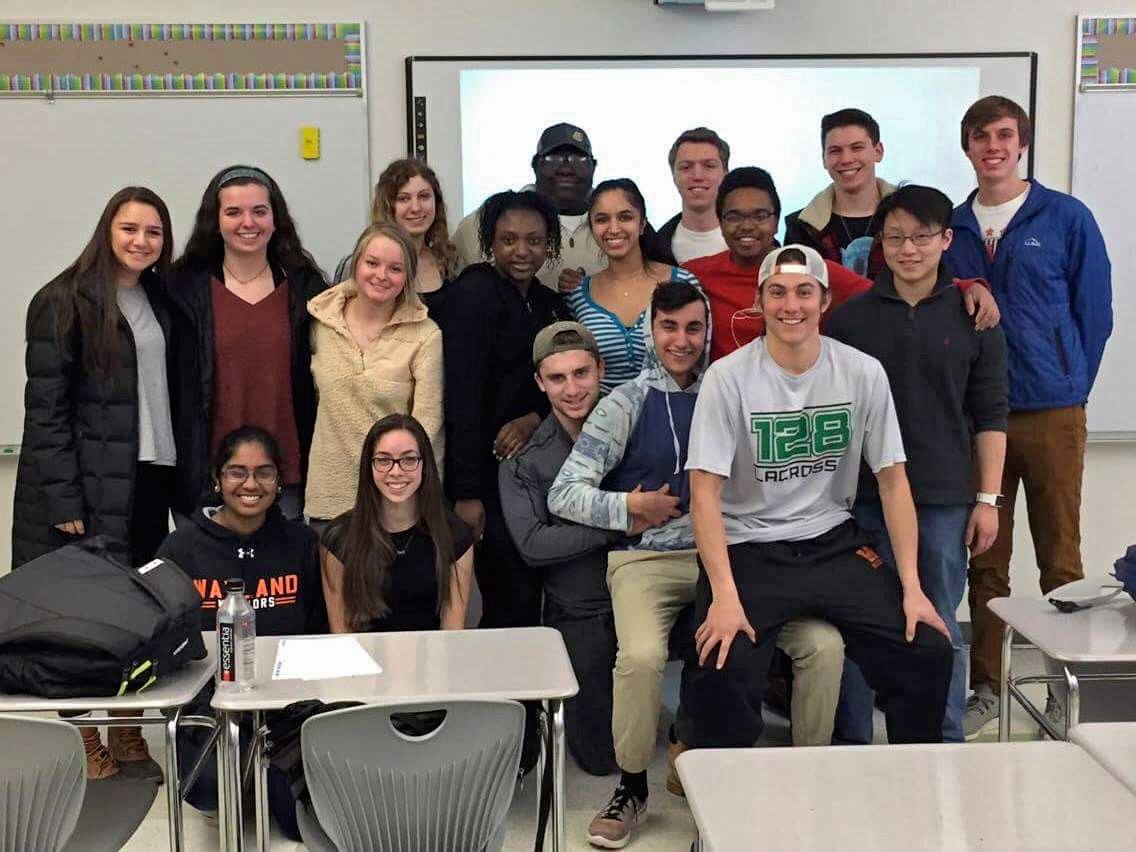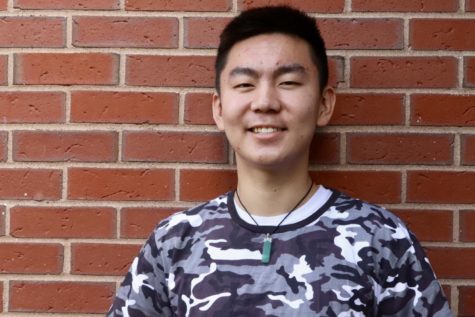Examining the roles and responsibilities of student government officers
Credit: Courtesy of WHS Reflector
Pictured above is WHS’ student council from the 2016-2017 school year. Students voted for student council officers on May 10, and for class officials on May 23. It is crucial that students understand the roles which they have voted their peers into.
May 25, 2017
Voting for the student council officers of 2018 and executive board elections are long gone, however, many students may be unsure of the exact roles of the offices which they have elected their peers into.
According to the Wayland Student Handbook and the Constitution of Wayland High School, these two representative bodies serve very different functions, despite the fact that they share an identical set of four offices. The Student Council is defined as “the supreme representative body of the students at Wayland High School.” By contrast, the Executive Board and Class Officers’ function is given simply as to “plan and run entertaining events to promote class spirit and unity.” Clearly, despite evident commonalities, these are two very separate entities, and must be defined as such.
The Student Council, as stated in Article 1 Section 2 of the Constitution of Wayland High School, has “the power to define the rights and privileges of, and the requirements and restrictions upon, the students… of Wayland High School.” This power is vested in a president, vice president, secretary, treasurer, and representatives of each class. Any measure that they pass through a majority is submitted to the principal for approval.
The president of Student Council holds objectively the longest list of responsibilities of any officer: to execute decisions passed by the council, to “be the spokesman for the student body,” to preside over meetings, and to “appoint the Student Council review board and all committees.” However, the Constitution does not grant the president a vote in the student council, unless they must “resolve a tie.”
Meanwhile, the vice president’s duties are defined as taking on the president’s responsibilities should they be unable to fulfill them, and to “serve on the Student Council review board.” The secretary is responsible for sending out “correspondence from the Student Council,” and for taking minutes of the meetings. The treasurer is given only a single duty in Article 5 of the Constitution: to keep an “accurate, up-to-date record of monetary transactions.”
Despite the concise nature of the Constitution on the Student Council treasurer’s position, Jakob Warner, who currently occupies the office, described a larger role.
“The role of the student council treasurer is to come up with fundraising ideas as well as plan them,” Warner said. “I have to do a lot more paperwork and forms than one would think.”
The above covers the entirety of the powers and responsibilities of the student council officers given in Article 5 of the Constitution. Some students have expressed a sense of being underwhelmed by the extent of these powers. One such student was vice-president elect, Kanming Xu. This interview was held before Xu was elected.
“As a freshman, the Student Council Vice President of Wayland High School title held so much more power. I have realized through the majority of my high school years that neither the President nor the Vice President really have all that much responsibility,” Xu said. “How much can one do in a single year, and how many changes can one make? Not too many.”
However, Xu thinks that the Student Council officers have a different responsibility, one not listed in the Constitution of Wayland High School.
“I think it’s more about the example a student council member can set. Freshmen are greeted on the first day by the President and their Vice, and after the reuniting with friends and seeing the Field House dome, that’s the first thing they’ll remember,” Xu said. “I believe the way people in power act can really shape the way the surrounding community is.”
Warner agreed that the responsibilities of Student Council members are not always what they may appear to the general student body.
“I think [students] misunderstand my role as treasurer. Many students think I am solely involved in counting money, but there’s actually a lot more to it than that,” Warner said.
The Executive Boards, while similar in function to the Student Council, work on a much smaller scope and in a separate jurisdiction. Like the Student Council, an Executive Board is composed of a president, vice president, treasurer, secretary and representatives.
These offices have nearly identical responsibilities written in the Constitution as their Student Council counterparts, so the main point of distinction is in their purpose and the material which the E-Board is responsible for discussing. While the Student Council is hypothetically responsible for measures regarding student rights and privileges, the E-Board is given the power to “coordinate all class activities and functions.” This includes events such as Sophomore Semi and Junior Prom. The expense of such events is cause for the final provision of the E-Boards’ function – raising funds to facilitate class activities. Similar to the Student Council, all members of an E-Board have votes on such measures, excluding the president, who votes only to resolve ties.
Tony Park, the senior class president, elaborated on the Constitution’s brief overview of his role.
“My role is basically to act as a voice and a representative of the entire grade. I listen to [the student body’s] ideas, convey their opinions and make decisions based off what the people want,” Park said.
However, Park shared Xu’s sentiment regarding the extent of his power in student government.
“I think that the student body generally overrates the e-board president’s authority,” Park said. “I remember coming in freshman year and even I thought that I would have been able to do a lot more that had to do with the class, but then I realized that there is only so much power the class president actually has.”
Freshman Ryan Urato stated a similar feeling about the amount power involved in his role as E-Board vice president for his class.
“I think [the student body] probably overrates the e-board vice president’s authority,” Urato said. “Right now, I would say that I am an e-board member with a [special] name.”
With E-Board elections coming on May 24, students will be competing to hold these positions. Therefore, voting members and candidates alike should keep in mind the powers and responsibilities granted to the officers, and what characteristics qualify one to fulfill those responsibilities.





![Last Wednesday, the Wayland School Committee gathered to discuss a number of topics regarding the health curriculum and Innovation Career Pathway course. Another large topic of conversation was the ways to potentially mitigate distracting cell phone usage. "These [phones] are going to distract your learning and social relationships," Superintendent David Fleishman said. "That's concrete right there."](https://waylandstudentpress.com/wp-content/uploads/2025/06/Screenshot-2025-06-04-at-9.49.31 PM-1200x886.png)



























![Troy Hoyt finishes the Boston Marathon, running for the Hoyt Foundation. T. Hoyt is the son of Hoyt Foundation CEO Russ Hoyt.
“[Running a marathon] might seem like a big thing, when it’s presented to you at first, but if you break it up and just keep telling yourself, “Yes, you can,” you can start chipping away at it. And before you know it, you’ll be running the whole 26 miles, and you won’t even think twice about it.” T. Hoyt said.](https://waylandstudentpress.com/wp-content/uploads/2025/04/C36E8761-1CBB-452E-9DF2-543EF7B1095E_1_105_c.jpeg)














































Andy Wang • May 26, 2017 at 11:04 AM
Vote Sayegh for vice